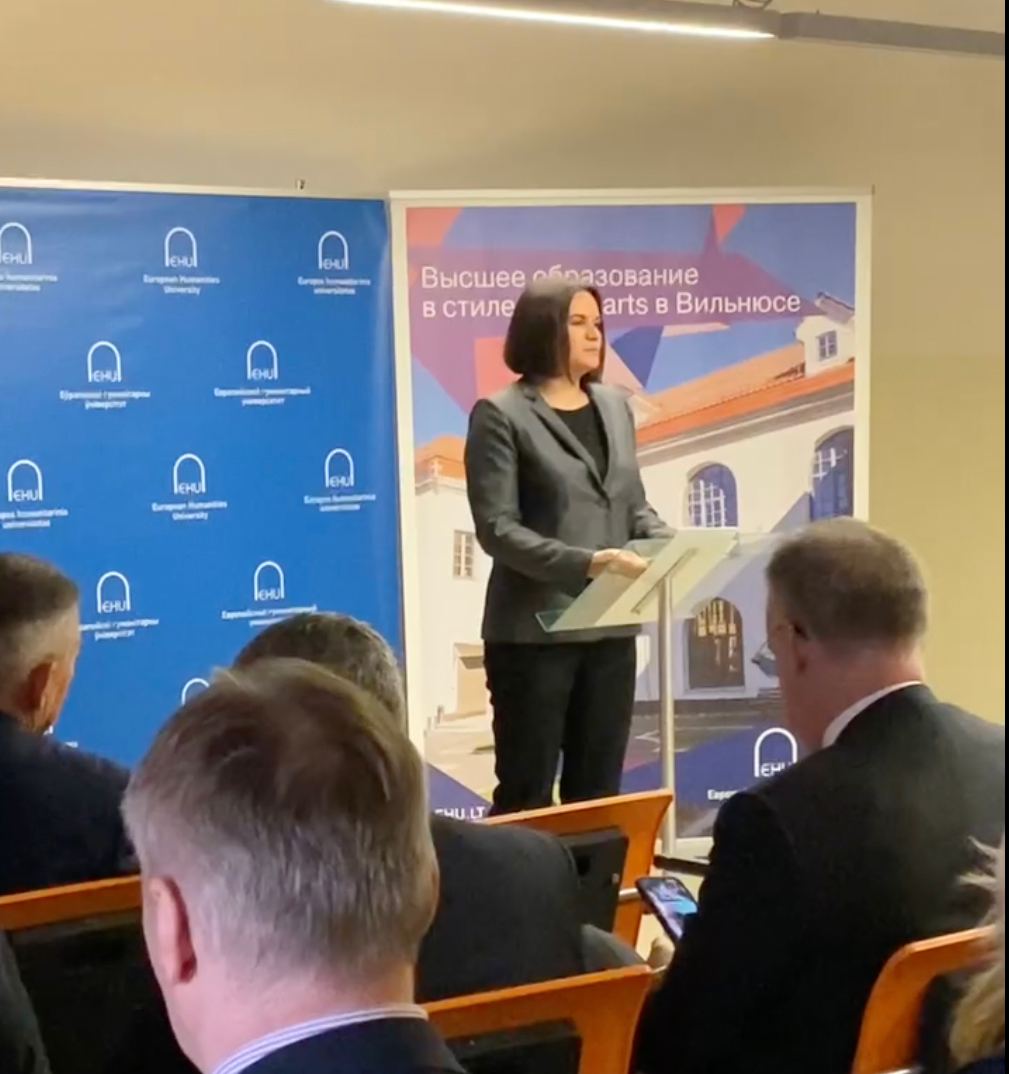“Ambassador Everard,
Ambassador De Lacoste,
Professor Ignatov,
First of all, let me express my gratitude to France for supporting Belarus's civil society and democratic changes in our country.
For many years, you supported Francophone Theater Festivals & Campus France. For many years, you invested in young Belarusians, who participated in exchanges and traveled to France. Thanks to you, young Belarusians were exposed to French culture and European values.
French Embassy and French institute conducted dozens or even hundreds of projects that helped shape the new generation of open-minded Belarusians.
Thank you for providing Belarusians with visas, and many, especially people of culture, found a safe haven in France.
Our National revival, followed by the democratic uprising in 2020, became possible thanks to the long and hard work that your team has conducted for years in Minsk and the Belarusian region.
French spirit of the fight for freedom was also felt on the streets of Minsk in 2020: many of you could hear the famous slogan Be realistic: demand the impossible! Which took its root in France in 1968.
Today’s launching, or, better to say, return, of The Francophone Center for the Humanities and Social Sciences in the European Humanities University is very symbolic.
Before the EHU was closed in Minsk in 2004, it had a well-known Franсo-Belarusian Faculty of Political and Administrative Sciences. Its graduates work in French governmental institutions, international organizations, and academia. I see this tradition continuing now.
I hope the new Francophone Center becomes a prominent research hub that will help find new ideas and develop effective policies for New Belarus.
I am very happy for students interested in the French language, culture, history, and politics. Now you will have your place here.
EHU is more than just a University for Belarusians. It became a haven for many repressed who fled the country. I am grateful to European Humanities University for accepting more than 100 students fleeing Belarus after 2020. I hope even more expelled Belarusian students will be able to continue their studies and get scholarships.
We should not forget those teachers, students, and alumni of EHU who are behind bars. Among the political prisoners of Belarus, there are two students of the EHU, Marfa Rabkova and Akikhiro Hayeuski-Hanada, it’s alumni Sofia Sapega, Mikalai Dziadok, Uladzimir Malakhouski, Ihar Barysau, and former coordinator of Franco-Belarusian Faculty, the head of International Department of EHU and its alumna Tatiana Kouzina.
I would like to pay tribute to Uladzimir Malakhouski. In 2020, he was an election observer. He was detained on September 13, 2020, at the peaceful rally in his hometown Vitebsk. Uladzimir has two underage children. He also suffers from cancer.
Nevertheless, it didn’t stop the regime from sentencing him to 3.5 years. His health is declining day by day. Uladzimir graduated from EHU in 2013. He studied cultural heritage.
And Belarus and France share a great heritage of the artists of the Paris school, born in Belarus. This heritage unites us. The heritage of Marc Chagall, the fellow countryman to Uladzimir, who imagined a different world, inspired by their native town of Vitebsk. Having emigrated to Paris, he continued drawing pictures of Vitebsk – paintings that inspired the world.
Or the heritage of Chaïm Soutine, whose painting Eva – brought to Minsk by Viktar Babaryka (also a political prisoner) – became one of the symbols of our freedom uprising.
As you can see, Belarus and France share cultural heritage, a love for freedom, and democratic values. And today, with the opening of the Francophone center, I’m happy that we’ll have one more place to cherish our shared heritage and values.
Vive La France!
Жыве Беларусь!
Thank you”.








